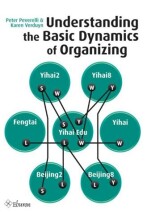Doing the right thing - What Matters is the motive / Immanuel Kant
18 important questions on Doing the right thing - What Matters is the motive / Immanuel Kant
If you believe in universal human rights, you are probably not utilitarian. Why not?
Kant offers an alternative account of duties and rights, one of the most powerful and influential account any philosopher has produced. Describe Kant's case for rights.
Why does Kant reject utilitarianism / what is his objection to maximizing happiness?
- Higher grades + faster learning
- Never study anything twice
- 100% sure, 100% understanding
Kant had a devastating critique on utilitarianism. It argues that morality is not about maximizing happiness, it is about respecting persons as ends in themselves. What offered Kant? (Groundwork)
We can arrive at the 'supreme principle of morality' through the exercise of what Kant calls 'pure practical reason'. Explain this.
What does Kant mean with sentient creatures? And relate this to Bentham.
To better learn what the 'supreme principle of morality' is, we can approach Kant's answer by seeing how he connects three big ideas. Explain this.
To make sense of Kant's moral philosophy, we need to understand what he means by freedom. What is this?
The opposite of autonomy is heteronomy (freedom contrast). How can you act heteronomy?
According to Kant, the moral worth of an action consist not in the consequences that flow from it. Out of what does it consist?
When does our action lacks moral worth?
Kant distinguishes two ways that reason can command the will: categorical vs hypothetical imperatives (reason contrast). Explain those 2:
There are two types of categorical imperatives. Describe those 2.
What does justice requires according to Kant?
Describe the vision of Kant regarding Justice, Freedom, Moral worth:
-Freedom = to act freely = to act autonomously = to act according to a law I gave myself (not according to the dictates of nature/social convection). Heteronomy is the contrast of this.
-Moral worth consists not in the consequences that flow from it, but in the indention/the motive.
Describe freedom according to Kant, who sees freedom as one of the most important issues:
2 People (rational creatures) have the freedom to think/make choices.
What would Kant think of suicide/murder and CSR (some examples)?
CSR: company CSR because of marketing: not morally good according to Kant. Its not free will: its listing to marketing. Its morally good when the company wants to do it themselves: don't hurt others/environment. CSR is always good, but the 'why' determines if its morally good.
Hannah Arendt: during WWII you had to obey what the nazi/regime/government dictated. What was Arendt's opinion?
The question on the page originate from the summary of the following study material:
- A unique study and practice tool
- Never study anything twice again
- Get the grades you hope for
- 100% sure, 100% understanding































